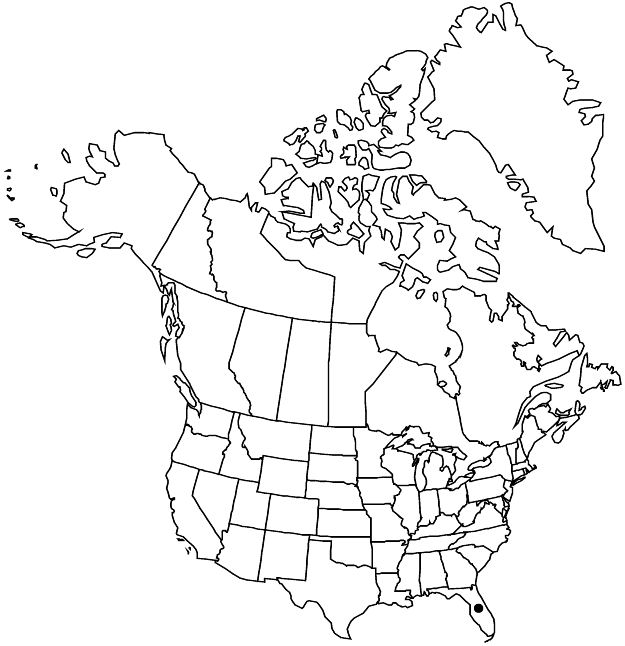Linum westii
Brittonia 15: 114, figs. 3(8–11). 1963.
Herbs, perennial, 43–50 cm, glabrous. Stems erect, unbranched proximal to inflorescence. Leaves mostly opposite, appressed-erect; stipular glands absent; blade elliptic to oblanceolate, cauline leaves 13–17 × 3–4 mm, margins entire, apex obtuse to acute. Inflorescences of few, few-flowered panicles, branches spreading-ascending, occupying to 1/4 or less of total height. Pedicels 0.5–2.9 mm, stout. Flowers: sepals persistent, inner ones broadly obovate, outer ovate, 3.1–3.6 mm, margins not scarious, inner glandular-toothed, outer entire, apex acute to acuminate; petals pale to bright-yellow, ovate, 6–7 mm; stamen length unknown; anther length unknown; staminodia absent; styles distinct, 2–3.1 mm; stigmas capitate. Capsules subglobose, 2.6–3 × 2.8–3 mm, apex abruptly short-pointed, dehiscing into 10, 1-seeded segments, segments falling freely, false septa nearly complete, ± spongy, proximal margins not ciliate. Seeds not seen. 2n = 36.
Phenology: Flowering Jun–Jul.
Habitat: Wet depressions in pine palmetto flatwoods, cypress-gum ponds.
Elevation: 0–20 m.
Discussion
The broad, many-toothed inner sepals and subglobose, sharply pointed capsules set Linum westii apart from other species (C. M. Rogers 1984). In addition, its seeds are lunate, compared with narrowly elliptic seeds of L. floridanum and L. macrocarpum. Linum westii is known only from about 16 occurrences, all from the Florida panhandle and northeastern Florida (Clay, Franklin, Gulf, Jackson, Liberty, and Okaloosa counties, and possibly Bay County), with historical records from Baker and Calhoun counties. R. Kral (1973) considered a Chapman collection from Georgia to have been mislabelled. There are no vouchers for reports of L. westii from Mississippi.
Selected References
None.
Lower Taxa
"wider" is not a number.
